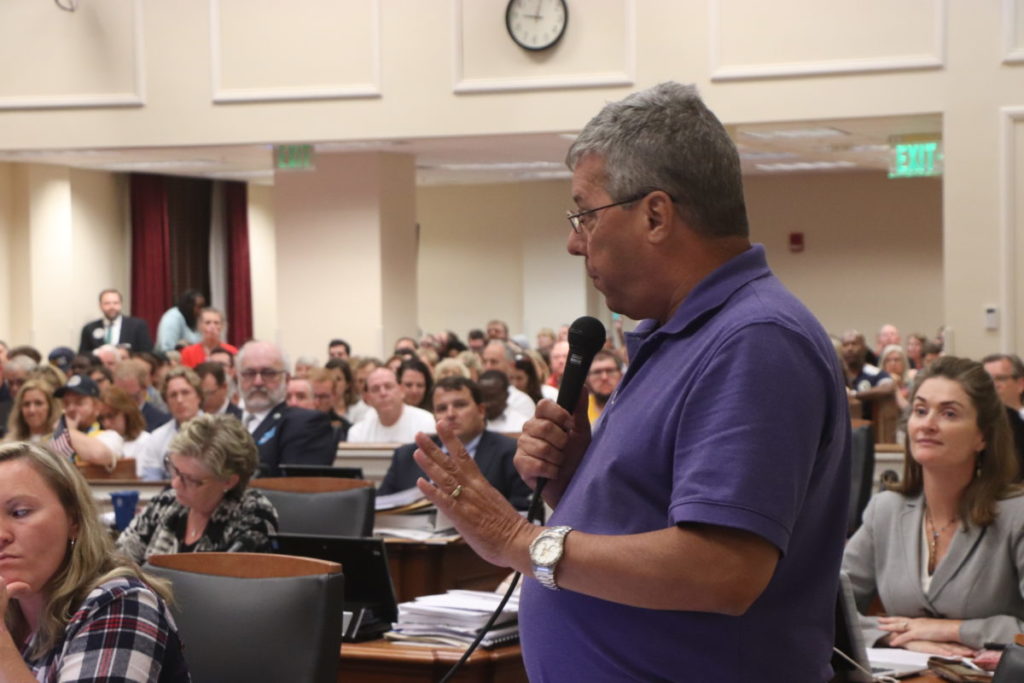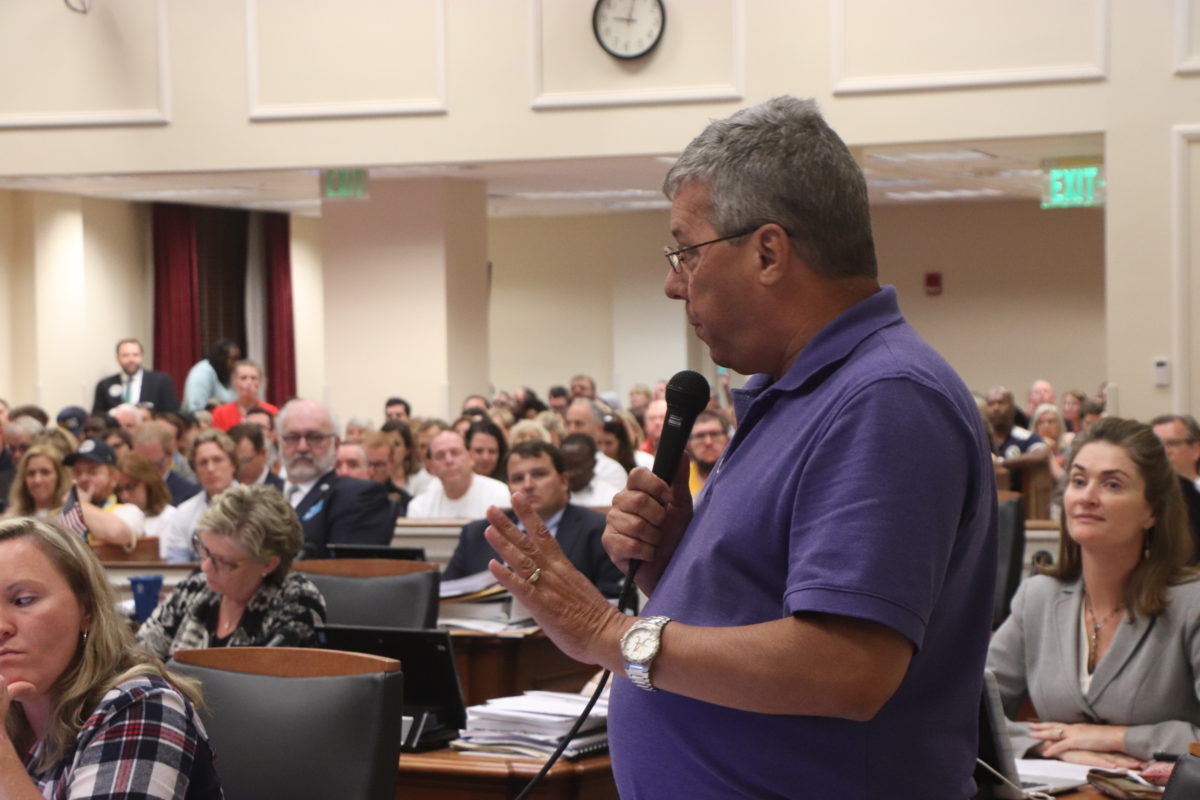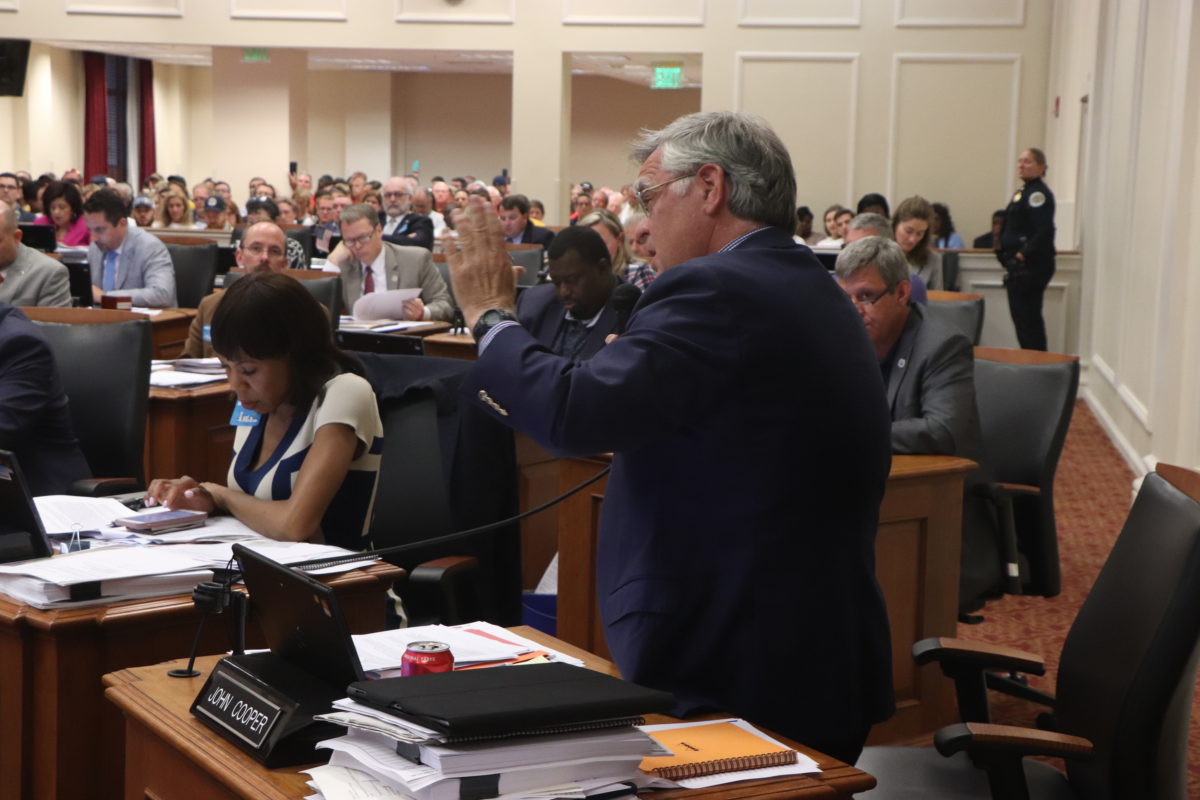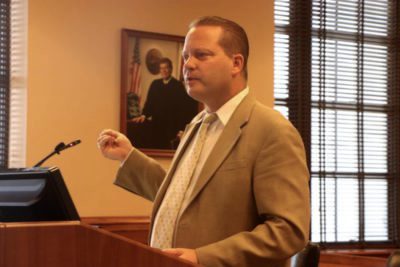Cooper Brings Legal Heavyweights to Anti-tax Referendum Fight – tntribune.com


NASHVILLE, TN – On September 4, 2018 Metro Council voted down a measure that would have let voters weigh in on the soccer stadium deal. Then At Large Councilman John Cooper, now Mayor John Cooper, voted for a referendum vote. That was then, this is now.
Cooper met with the Davidson County Election Commission two weeks ago urging them to block the Nashville Taxpayer Protection Act, the anti-tax referendum that also includes a provision aimed at stopping the soccer stadium construction at the Nashville Fairgrounds.

The Mayor got the election commission to punt on whether to put the measure on the ballot for a special December election. It secured the required number of signatures but the commission found it procedurally deficient.
They voted 3-2 to send the measure to a Chancery Court to decide on its constitutionality. The commission voted to hire Attorney William C. Koch to represent them in court. Koch is a former Tennessee Supreme Court Justice.
According to Tricia Herzfeld, a Davidson County Election commissioner,a majority is hoping for an expedited review and an opinion that will keep people from voting on the referendum. She said it would save the city about a million dollars.
“The public thinks of us only counting signatures but in certain circumstances our authority is broader than that to make sure that something is appropriate to appear on the ballot,“ Herzfeld said.
“I voted against putting it on the ballot in the way that it was,” she said. Commissioner Jim DeLanis wanted to edit the referendum to remove any constitutionally suspect parts but his motion did not receive a second. Herzfeld said it’s not the commission’s job to parse through a referendum’s language and that the commission does not have legal grounds to change the content of a referendum proposal.
“Cooper is dead set on trying to get this off the ballot. He absolutely doesn’t want it,” said Attorney Jim Roberts. Roberts wrote the ballot measure and he is also the attorney who just finished suing Metro over the soccer stadium deal. A decision in that case is expected October 16.

The anti-tax measure has five parts and Herzfeld said there were pretty significant procedural flaws with each of them. “The most obvious one was changing how you would do a referendum for bonds,” she said. A number of state laws regulate the issuing of bonds. “This petition doesn’t meet those requirements under Tennessee law.”
There is no specific state law that prohibits limiting a municipality’s authority to issues bonds. But according to Tennessee Code 9-21-103, there is no indebtedness limit on how much bond debt Metro can take on. The referendum measure caps Metro’s authority at $15 million and anything more would require voter approval.
Roberts’ intent was to restrict Metro’s spendthrift ways by regulating its ability to issue bonds. Ultimately, a court would have to decide if that is a fatal flaw because the amendment conflicts with state bond rules. But now the big question for a judge will be: can you preempt a local measure before it has been voted on because it would violate state law?
Bob Cooper, Metro’s law director and former Tennessee Attorney General, has no doubt that you can. Cooper wrote the legal opinion for Metro in its successful challenge to Governor Lee’s school voucher bill. He is not related to the Mayor. Cooper whipped up a 15-page opinion on the anti-tax referendum and sent it to the Mayor September 28, the same day the commission voted to ask a Chancery Court judge to give a legal opinion on the referendum.
The chancellor could borrow Cooper’s brief of the case and save a lot of legwork. It is detailed and quotes case law and argues the petition is invalid for a number of reasons.
First, he argues that Metro Council, not voters, set property taxes. Secondly, you can’t roll back a tax rate in mid-year. Thirdly, the referendum, although it has five parts, is all one proposal and has no severability clause. “If any part of the proposed amendment is void, then the entire amendment is void,” wrote Cooper.
Cooper argued that you can’t undo by referendum what has already been done by Metro Council. The referendum retroactively sets January 2020 as an enforcement date for the referendum’s provisions. Cooper said that is patently unconstitutional.
For his part, Roberts doesn’t care. He said he very deliberately chose the language of the referendum. Like waving a red flag in front of a bull, Roberts has succeeded in provoking City Hall. He said he would sue the election commission if they don’t put the measure on the ballot.
“They have a legal duty to put this on the ballot and they are just refusing to do that,” Roberts said. He said Metro can file, but won’t win, a preemptive lawsuit about something that hasn’t happened yet. “Courts aren’t allowed to do that because it might not pass,” Roberts said.
“I can tell you with absolute certainty there are forces aligning that will force a second ballot initiative that will be worse than what he (Mayor Cooper) is trying to avoid right now,” Roberts said.
In the end, politics is the cause of all the legal wrangling. At-Large Councilman Steve Glover, Metro Council’s resident curmudgeon, is still fuming about a public hearing last June that he says was orchestrated by Cooper and his allies on the council to approve a 34% property tax increase.
“This whole thing was crammed down the taxpayers’ throats. They didn’t have a say in this,” Glover said. He said the council held a sham public hearing on the tax increase with ginned up lines and not a lot of people got to speak.
“None of them in the majority down there wanted to sit down and have a legitimate conversation about meeting somewhere in the middle,” Glover said. He said the city didn’t cut expenses or do anything they should do in a financial crisis. “They put the votes together and said ‘taxpayers be darned’.”
“All I know now is that Metro is going to spend $50-$100 thousand dollars suing the taxpayers of Nashville. How bad does that stink?”
Of course, Metro may not sue and wait for Roberts to sue the Election Commission. Either way, it will cost taxpayers more money.
